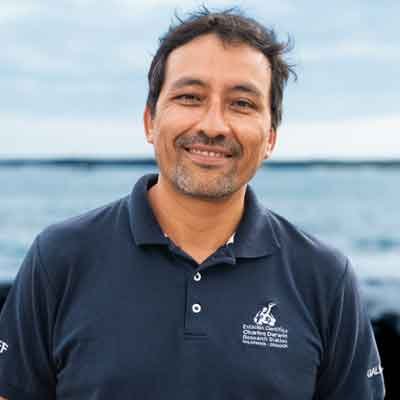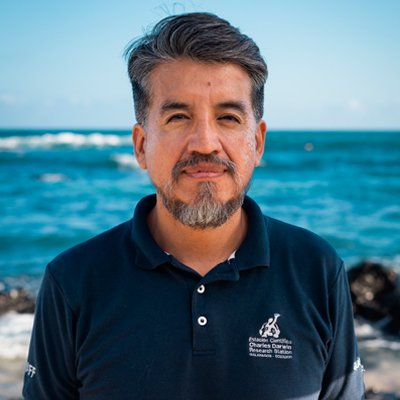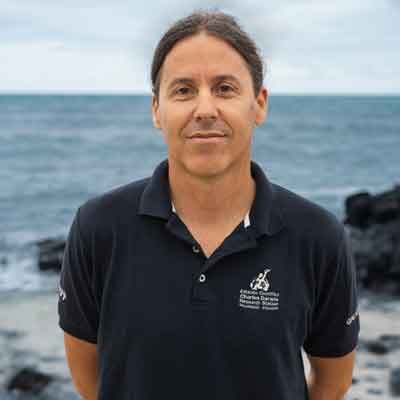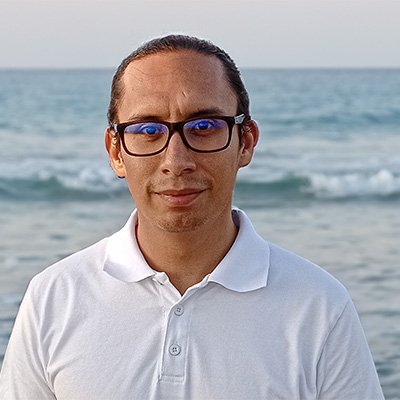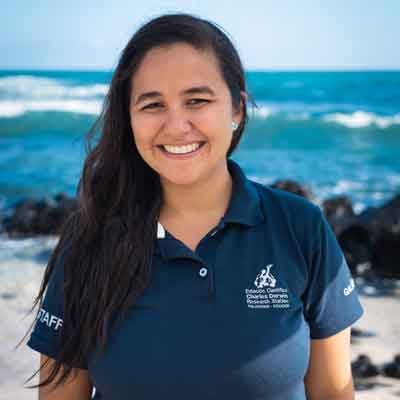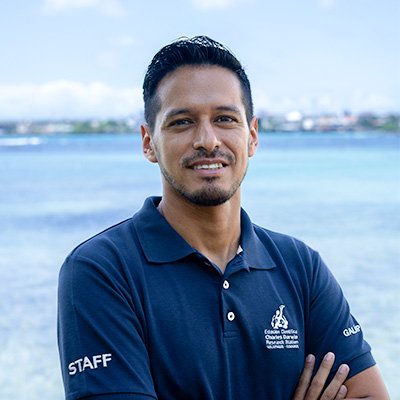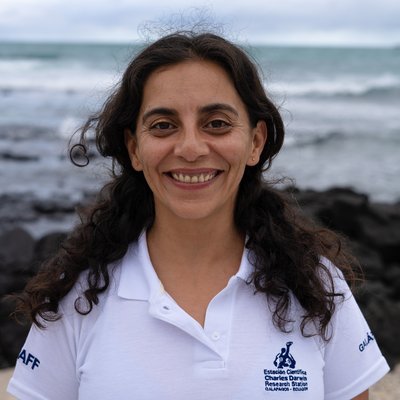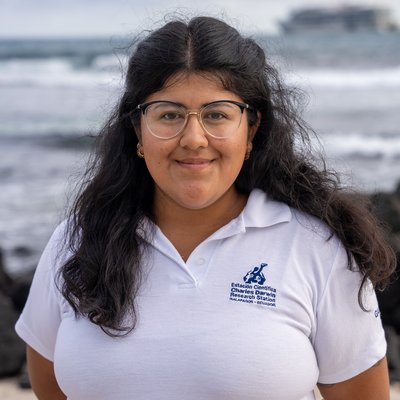The artisanal fishing sector is vital to the Galapagos Islands, but it is facing increasing challenges such as climate change, unfair value chains, and over-exploitation. Our program seeks to create a more prosperous, autonomous, and fair seafood system that is respectful of the natural environment, and fosters resilience against environmental, socio-economic, and climate change.
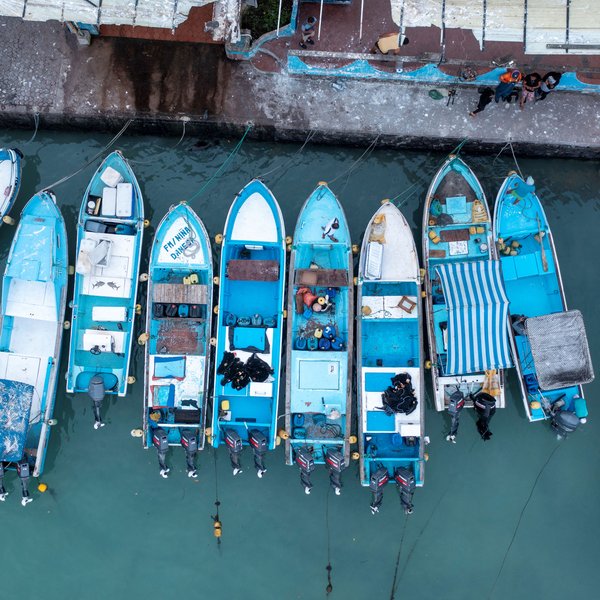
Our Team
Jorge Ramírez
Co-Principal Investigator - Sustainable Fisheries
César Viteri
Co-Principal Investigator - Sustainable Fisheries
Nicolás Moity
Senior Researcher in Marine Sciences & Geospatial expert
Nicolás Zapata
Social Scientist Junior
Solange Andrade
Research Assistant
Felix Burgos Saquicela
Advisor on Biobusiness and Innovation
Carolina Páez
Senior Researcher in Social Sciences and Fisheries
María Dolores Araujo
Field Assistant for Bio-business and Innovation
Donors
Fundación de Conservación Jocotoco
Island Conservation
Anonymous donor
Collaborators
Galapagos National Park Directorate, Galapagos Artisanal Fisheries Sector, Instituto Oceanográfico y Antártico de la Armada del Ecuador, Subsecretaría de Recursos Pesqueros, Universidad San Francisco de Quito, Universidad de Las Américas, Conservation International Ecuador, WWF Ecuador, Cornell University, Heriot-Watt University, Swedish University of Agricultural Sciences, Universidad Autónoma de Baja California Sur, Universidad Agraria La Molina, Universidad Central del Ecuador, Cal Poly Humboldt: California Polytechnic State University, Island Conservation, Fundación de Conservación Jocotoco
GFTT Advisory Group
Ratana Chuenpadgee, Robert Costanza, Silvia Salas, Omar Defeo, Carlos Chávez
Fisheries in Galapagos
In Galapagos, fisheries are a pillar of local food systems, being one of the few local sources of high-quality protein. Fishing inside the Galapagos Marine Reserve is restricted to artisanal fishing and managed by the Galapagos National Park Directorate (GNPD), which sets quotas for the fishing resources in Galapagos to minimize over-exploitation of resources and maintain ocean health.
After tourism, the artisanal fishing sector is the second most important driver of the Galapagos Islands’ local economy. More than 500 families depend on this activity, which supplies restaurants, cruise ships, hotels, and feeds local people across the four inhabited islands. Artisanal fishing can generate $10.5 million in gross revenue every year, and was the activity that revitalized the local economy following the COVID-19 pandemic. Moreover, fishing has an important cultural component and is a key social bonding element for Galapagos residents.
Coastal and oceanic systems are intricately connected, and global factors such as climate change, international trade and shipping, overfishing, and pollution can have a direct and significant impact on the social, economic, and ecological aspects of the Galapagos Islands, both immediately and in the longer term. We believe it is essential to have a deep understanding of the complex seafood system in the Galapagos Islands in order to manage it effectively and protect it from these global threats.
The Galapagos Fisheries Think Tank
The Galapagos Fisheries Think Tank (GFTT) is a unique initiative convening scientists of diverse disciplines from the Charles Darwin Foundation (CDF) who are united by their interest in understanding and managing marine socio-ecological systems in Galapagos. With a mission to achieve just, prosperous, and resilient marine-coastal socio-ecological systems, the GFTT serves as a trusted source of cutting-edge scientific knowledge, informing decision-making at governmental, social, and private sector levels in Galapagos and the broader Eastern Tropical Pacific.
To champion this mission, the GFTT leverages a high-level advisory group. This distinguished collective gathers renowned academics specializing in environment, marine ecosystems, socio-ecological systems, environmental economics, fisheries, and environmental governance. Striking a balance in both gender and North-South representation, the group serves as a vital resource for the GFTT, providing crucial research guidance, amplifying the visibility of our work, and generating funding opportunities.
Specific Program Objectives
Our goal is to help create a more prosperous, autonomous, and fair seafood system that fosters resilience against environmental and socio-economic shocks, such as pandemics, global economic crises, and the anticipated impacts of climate change.
- Strengthen and expand the project's interdisciplinary approach to fisheries research; to consider climate change, the fisheries supply and value chain, and food security; to be inclusive of gender, and account for ecosystem services within the Insular Economic Exclusive Zone, which is the marine area surrounding the Galapagos Islands that extends 200 miles from shore.
- Understand the social-ecological fishing system of the Galapagos Islands and provide updated information to help the GNPD improve its sustainable fisheries policies.
What We Do
Our biologists study the life histories of the key commercial fish species, the role of ecosystems in their growth and development, and the influence of climate change on their populations. Our economists and sociologists explore the contributions these natural systems make to our communities, examining the delicate balance between humans and nature. By assessing the role fisheries play in food security, the societal impacts of climate change, and the governance of marine resource utilization, we gain invaluable insights into the complex web of relationships that define our food systems. This holistic approach helps inform decision making around sustainable fisheries management to minimize over-exploitation of fishing resources and safeguard their long-term health.
We actively assess innovative tools for sustainable fishing to help the artisanal fishers diversify their catch without harming the environment, while also increasing their incomes. We also apply digital and social technologies to develop seafood entrepreneurship hubs and provide incentives for sustainable fishing, trade and consumption.
Our Impact
Demonstrating the value of marine ecosystem services
Implemented the UN Environmental-Economic Accounting methodology, as well as other economic valuation methods to demonstrate the contribution of marine ecosystem services to the prosperity and well-being of communities.
Contributing to sustainable fishing policies
Provided scientific advice on the development and updating of several fisheries policies in Galapagos.
Recovering lobster and sea cucumber populations
Produced research-based directives that have been instrumental to the recovery of spiny lobster and sea cucumber populations, which were overexploited during the first decade of the 2000s. Today, the GNPD and the artisanal fishers of Galapagos use a methodology developed by our researchers to determine sustainable extraction levels without harming the population of sea cucumbers – one of the most lucrative fishing products in Galapagos.
Establishing the Galapagos Seafood Entrepreneurship Community
Formed the Galapagos Seafood Entrepreneurship Community, a platform to cultivate the entrepreneurial spirit, encourage innovation, and promote a horizontal learning culture among the Galapagos community by jointly co-creating the vision for the Galapagos seafood system.
Adapting fisheries to climate change
Delivered the first projections of sea cucumber and yellowfin tuna population abundance under climate change scenarios in Galapagos. This work has led to recommendations for adaptation actions to mitigate the impacts of climate change on the socio-ecological fishing system of Galapagos.
Why It Matters
Sustainable fishing is crucial to island life, especially here in Galapagos, where artisanal fishing is a significant source of income and employment. Sustainable fishing provides many benefits and opportunities.
- Economic stability: Sustainable fishing practices prevent overfishing and preserve fish populations. The Galapagos Islands can thereby rely on a consistent source of income which in turn contributes to economic stability.
- Food security: Fish is a primary source of protein for most island residents. Sustainable fishing ensures a steady supply of locally-sourced food, reducing the risk of shortages and malnutrition, and diminishing the influx of materials to the islands which could otherwise stow away new invasive species. It also safeguards against the depletion of fish stocks, which could lead to future food security challenges.
- Conservation of ecosystems: Sustainable fishing practices prioritize the protection of marine biodiversity and the preservation of important habitats.
- Cultural heritage: Sustainable fishing practices help preserve traditional fishing methods and cultural values, and ensure that the knowledge and traditions passed down through generations are not lost.
Why You Should Support Us
CDF is the official advisor to the GNPD, and the only research institution that conducts interdisciplinary studies on Galapagos fisheries for a sustainable future. Your support will help us protect the livelihoods of local communities that depend on artisanal fishing, while protecting the environment.
Here are some specific ways that your sponsorship can help:
- Provide livelihoods for local fishers and their families, promoting economic stability and self-sufficiency in the region.
- Protect endangered species and maintain an ecological balance, so no single species is overexploited at any time.
- Contribute to the long-term sustainability of fisheries and thereby create lasting change.
Scientific publications
Ramírez, J., Moity, N., Rivera, F.E., Brandt, M., Andrade, S., Bensted-Smith, W., Domínguez, O., Espinoza, E., Grove, J.S., Keith, I., Suárez, J., Tapia, I. & Tirado-Sánchez, N. 2023. Paralabrax albomaculatus. The IUCN Red List of Threatened Species 2023: e.T183769A217448475.
Ramírez, J., Moity, N., Rivera, F.E., Brandt, M., Andrade, S., Bensted-Smith, W., Domínguez, O., Espinoza, E., Grove, J.S., Keith, I., Suárez, J., Tapia, I. & Tirado-Sánchez, N. 2023. Mycteroperca olfax. The IUCN Red List of Threatened Species 2023: e.T14051A150898663. Accessed on 12 December 2023.
Ramírez-González, J., Moity, N., Andrade-Vera, S. & Reyes, M. J. 2020. Overexploitation and more than a decade of failed management leads to no recovery of the Galápagos sea cucumber fishery. doi: 10.3389/fmars.2020.554314
Viteri, C., Ramírez, J., Tanner, M. & Barragán-Paladines, M.J. 2020. Win-win’ or ‘lose-win’ arena: negotiations of the zoning formats of the Galapagos Marine Reserve, Ecuador. In: Kerezi, V., Pietruszka, D.K., & Chuenpagdee, R. (Eds.) Blue Justice For Small-Scale Fisheries: A Global Scan. TBTI Global Publication Series, St. John's, NL, Canada.
Ramírez-González, J., Moity, N., Tanner, M. K., Herrera, H., and Andrade-Vera, S. 2020. Exploring the impacts of climate change on the Galapagos sailfin grouper (Mycteroperca olfax) and the yellowfin tuna (Thunnus albacares) in the Galapagos Marine Reserve. Technical Report No. 1, Year 2020. Charles Darwin Foundation. Puerto Ayora, Galapagos, Ecuador. 19 pp
Habla Tiburón: Promoting sustainable fishing practices to conserve sharks and rays
Ecuador has played a leading role in ocean conservation in recent years. Currently, 13% of the Ecuadorian exclusive economic zone is under some sort of management, and the government has pledged to protect 30% by 2030. However, illegal fishing remains a key issue for shark conservation today.
Since June 2023, our sustainable fisheries and shark researchers have been working on an ambitious five year project to strengthen seascape governance in order to safeguard shark and ray populations in mainland and insular Ecuador.
Concretely, the project aims to:
- Strengthen fisheries governance through a participatory model.
- Increase monitoring, control, compliance and traceability capacities of national authorities and fisher associations to combat illegal, unreported and unregulated fishing.
- Promote responsible fishing practices by implementing market and conservation incentives.
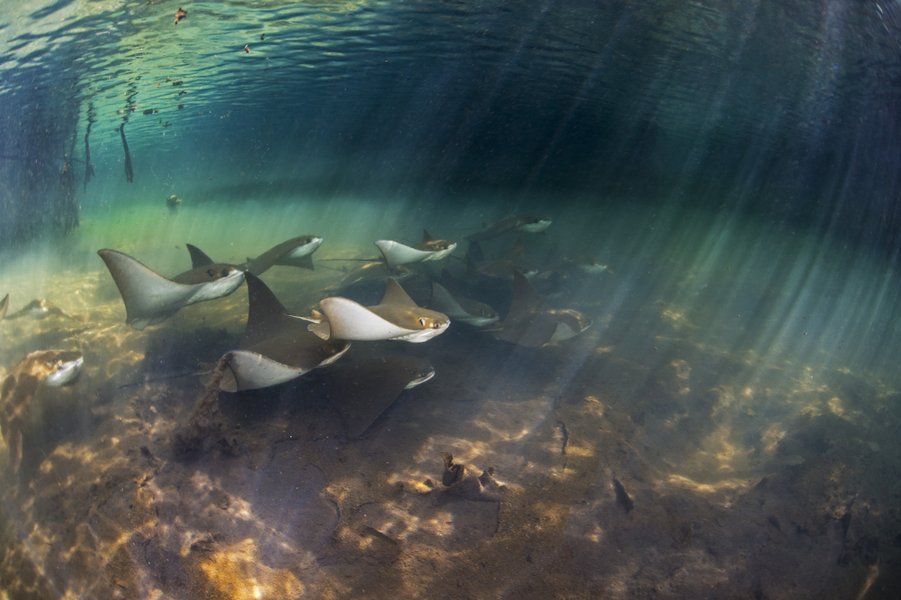

Protect Galapagos, Impact the World
The impact you make on this small ecosystem of enormous biodiversity is part of a larger footprint you are leaving for the world's future. Join us on our mission to safeguard one of our planet’s most important natural treasures through science and conservation action by making a donation today. Thank you for making an impact with us.




